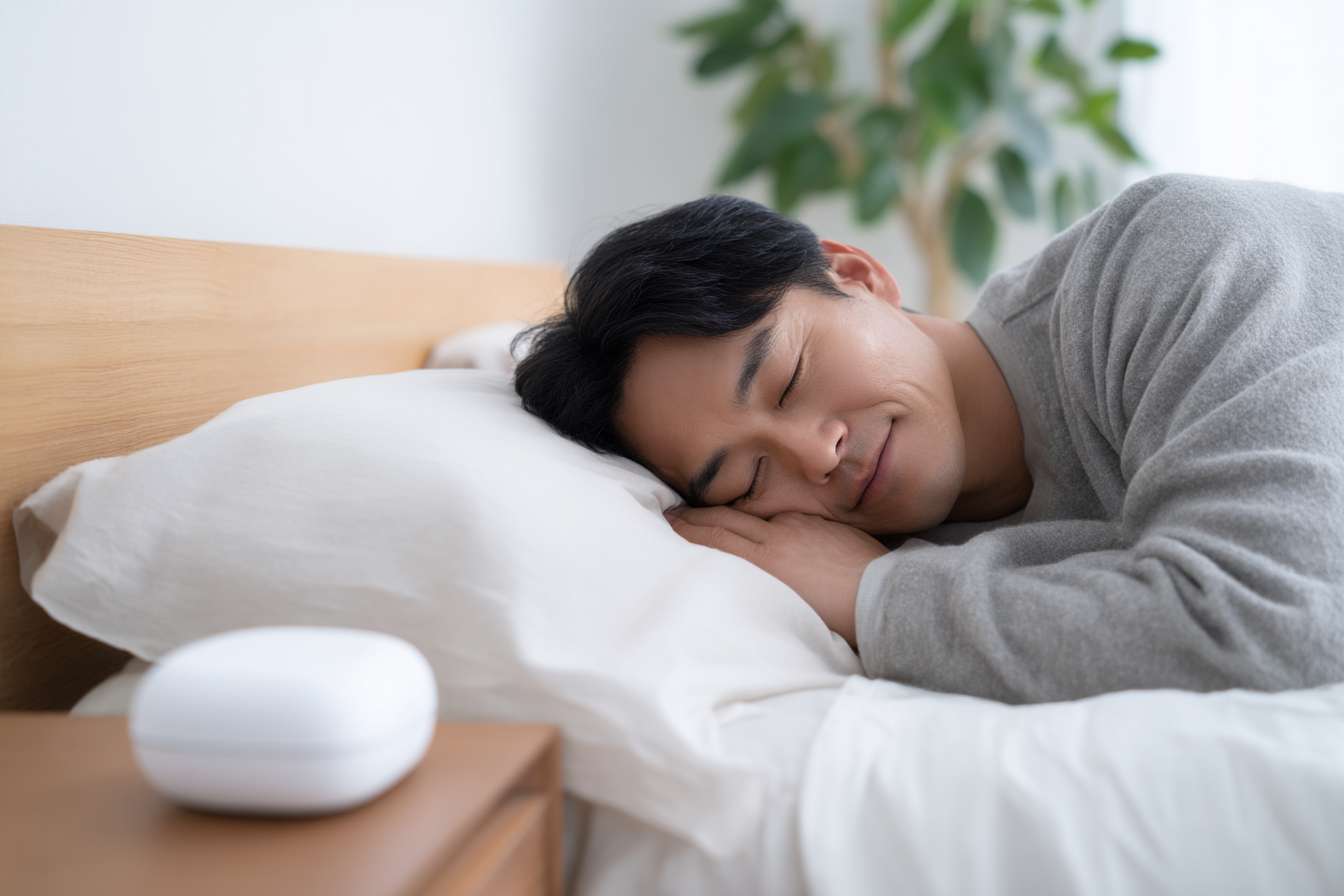The Comprehensive Guide to Sleep Aids: Finding Your Path to Better Rest
Sleep is a vital component of our overall health and well-being, yet many people struggle to get the rest they need. In today's fast-paced world, sleep aids have become increasingly popular as a means to combat insomnia and improve sleep quality. This article will explore various sleep aids, their effectiveness, and how to incorporate them into your bedtime routine for optimal relaxation and rest.

Some common types of sleep aids include:
-
Medications (prescription and over-the-counter)
-
Herbal supplements and natural remedies
-
White noise machines and sound therapy devices
-
Sleep tracking apps and wearables
-
Specialized bedding and pillows
-
Relaxation techniques and cognitive behavioral therapy for insomnia (CBT-I)
Each of these categories offers unique benefits and potential drawbacks, making it essential to understand your specific sleep needs before choosing a sleep aid.
How can you create a sleep-friendly bedroom environment?
Your bedroom plays a crucial role in promoting quality sleep. Creating an environment conducive to rest can significantly improve your sleep experience. Here are some tips to optimize your bedroom for better sleep:
-
Keep it dark: Use blackout curtains or an eye mask to block out light, which can interfere with your body’s natural sleep-wake cycle.
-
Maintain a cool temperature: The ideal sleeping temperature is between 60-67°F (15-19°C). Use fans, air conditioning, or open windows to achieve this range.
-
Minimize noise: If you live in a noisy area, consider using earplugs or a white noise machine to mask disruptive sounds.
-
Invest in a comfortable bed: A supportive mattress and pillows can make a significant difference in your sleep quality.
-
Remove electronic devices: The blue light emitted by smartphones, tablets, and computers can interfere with your body’s production of melatonin, a sleep-inducing hormone.
-
Use calming colors: Choose soothing, muted colors for your bedroom walls and decor to create a relaxing atmosphere.
By implementing these changes, you can transform your bedroom into a sleep sanctuary that promotes relaxation and rest.
What natural remedies can help with insomnia?
For those who prefer a more holistic approach to sleep, several natural remedies have shown promise in addressing insomnia and sleep disturbances:
-
Melatonin supplements: This hormone naturally regulates your sleep-wake cycle and can be taken as a supplement to help with jet lag or shift work sleep disorders.
-
Valerian root: An herb that has been used for centuries to promote relaxation and improve sleep quality.
-
Chamomile tea: Known for its calming properties, chamomile tea can be a soothing pre-bedtime ritual.
-
Lavender: Whether used as an essential oil for aromatherapy or in a pillow spray, lavender has been shown to promote relaxation and improve sleep quality.
-
Magnesium: This mineral plays a role in regulating neurotransmitters that calm the nervous system, potentially improving sleep quality.
-
Passionflower: Another herb with sedative properties that may help reduce anxiety and promote better sleep.
While these natural remedies can be effective for some individuals, it’s important to consult with a healthcare professional before starting any new supplement regimen, especially if you have existing health conditions or are taking medications.
How can relaxation techniques improve sleep quality?
Incorporating relaxation techniques into your bedtime routine can significantly improve your ability to fall asleep and enhance overall sleep quality. Some effective relaxation methods include:
-
Progressive muscle relaxation: Systematically tensing and relaxing different muscle groups to release physical tension.
-
Deep breathing exercises: Focusing on slow, deep breaths can help calm the mind and body.
-
Meditation: Practicing mindfulness or guided meditation can reduce stress and promote relaxation.
-
Yoga: Gentle, restorative yoga poses can help prepare your body for sleep.
-
Visualization: Imagining peaceful, calming scenes can help quiet a racing mind.
-
Journaling: Writing down thoughts and concerns before bed can help clear your mind for sleep.
Consistency is key when implementing these techniques. Try to incorporate one or more of these practices into your nightly routine for best results.
What role does technology play in modern sleep aids?
In recent years, technology has played an increasingly significant role in the world of sleep aids. From smartphone apps to wearable devices, these technological solutions aim to help users understand and improve their sleep patterns:
-
Sleep tracking apps: These use your smartphone’s sensors to monitor your sleep cycles and provide insights into your sleep quality.
-
Smart mattresses: These high-tech beds can adjust firmness, temperature, and even provide sleep tracking data.
-
Light therapy devices: These simulate natural light patterns to help regulate your circadian rhythm.
-
Noise-canceling earbuds: Designed specifically for sleep, these can block out ambient noise and play soothing sounds.
-
Smart alarm clocks: These devices use sleep cycle data to wake you at the optimal point in your sleep cycle.
While these technological sleep aids can provide valuable insights and assistance, it’s important to remember that they should complement, not replace, good sleep hygiene practices.
When should you consult a healthcare professional about sleep issues?
While occasional sleep disturbances are normal, persistent sleep problems can significantly impact your health and quality of life. It’s important to consult a healthcare professional if:
-
You consistently have trouble falling asleep or staying asleep.
-
You feel excessively tired or unrefreshed during the day, despite getting adequate sleep.
-
Your sleep patterns are interfering with your daily activities or relationships.
-
You experience symptoms of sleep disorders such as loud snoring, gasping for air during sleep, or restless legs.
-
Your sleep problems persist for more than a few weeks, despite trying various sleep aids and improving sleep hygiene.
A healthcare provider can help identify underlying causes of sleep issues and recommend appropriate treatments, which may include cognitive behavioral therapy for insomnia, prescription medications, or further testing for sleep disorders.
In conclusion, sleep aids can be valuable tools in improving sleep quality and addressing insomnia. From creating a sleep-friendly bedroom environment to exploring natural remedies and relaxation techniques, there are numerous approaches to enhancing your sleep experience. Remember that what works best can vary from person to person, so it may take some experimentation to find the right combination of sleep aids for your needs. Always prioritize good sleep hygiene practices and consult with a healthcare professional if sleep problems persist.
This article is for informational purposes only and should not be considered medical advice. Please consult a qualified healthcare professional for personalized guidance and treatment.






